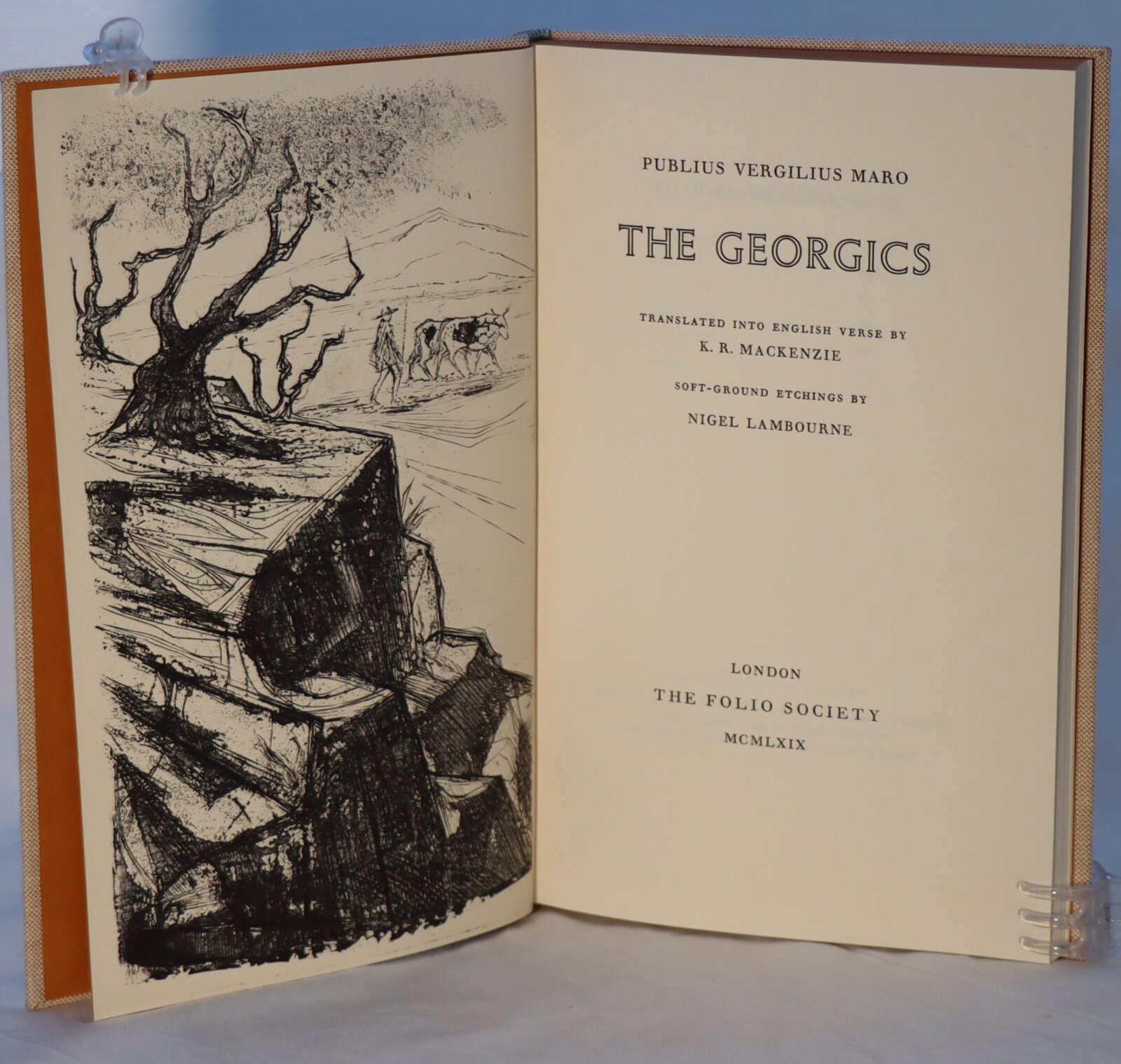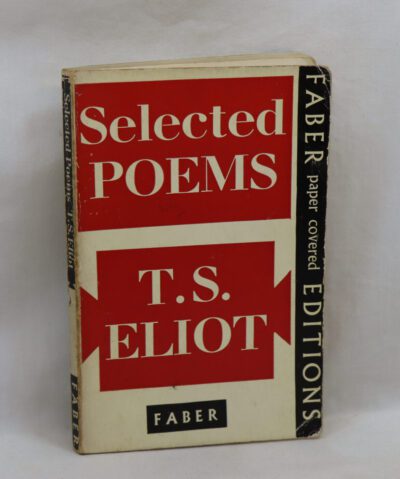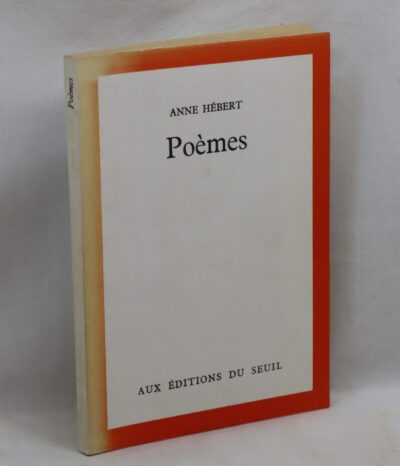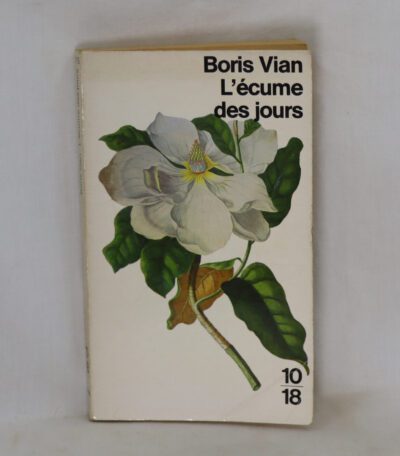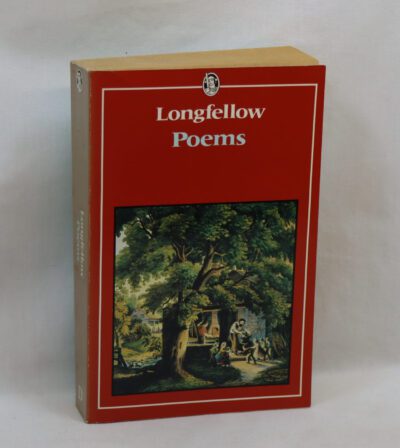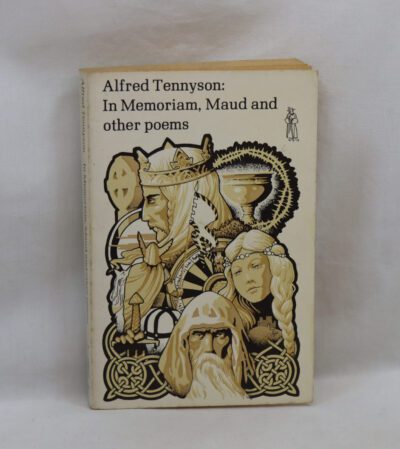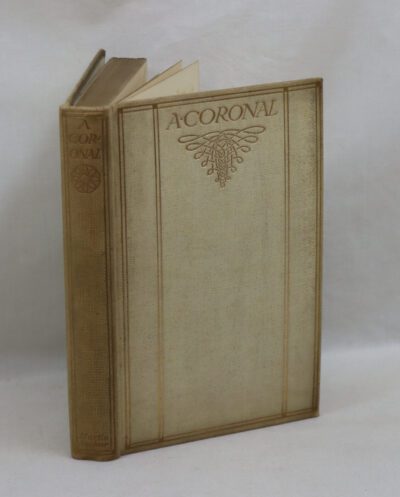The Georgics.
By Pulius Vergilius Maro
Printed: 1969
Publisher: The Folio Society. London
| Dimensions | 16 × 26 × 2 cm |
|---|---|
| Language |
Language: English
Size (cminches): 16 x 26 x 2
Condition: Fine (See explanation of ratings)
Your items
Item information
Description
In a fitted box.Tan cloth binding with gilt title on the spine.
F.B.A. provides an in-depth photographic presentation of this item to stimulate your feeling and touch. More traditional book descriptions are immediately available.
The Georgics is a poem in four books, likely published in 29 BC. It is the second major work by the Latin poet Virgil, following his Eclogues and preceding the Aeneid. It is a poem that draws on many prior sources and influenced many later authors from antiquity to the present. As its name suggests (from the Greek word “to farm”) the subject of the poem is agriculture; but far from being an example of peaceful rural poetry, it is a work characterized by tensions in both theme and purpose.
The Georgics is a poem by Latin poet Virgil, likely published in 29 BCE. As the name suggests (from the Greek word γεωργικά, geōrgiká, i.e. “agricultural (things)”) the subject of the poem is agriculture; but far from being an example of peaceful rural poetry, it is a work characterized by tensions in both theme and purpose.
The Georgics is considered Virgil’s second major work, following his Eclogues and preceding the Aeneid. The poem draws on a variety of prior sources and has influenced many later authors from antiquity to the present.
Publius Vergilius Maro; traditional dates 15 October 70 – 21 September 19 BC), usually called Virgil or Vergil in English, was an ancient Roman poet of the Augustan period. He composed three of the most famous poems in Latin literature: the Eclogues (or Bucolics), the Georgics, and the epic Aeneid. A number of minor poems, collected in the Appendix Vergiliana, were attributed to him in ancient times, but modern scholars consider his authorship of these poems to be dubious.
Virgil’s work has had great influence on Western literature, most notably Dante’s Divine Comedy, in which Virgil appears as the author’s guide through Hell and Purgatory. Virgil has been traditionally ranked as one of Rome’s greatest poets. His Aeneid is also considered a national epic of ancient Rome, a title held since composition.
Want to know more about this item?
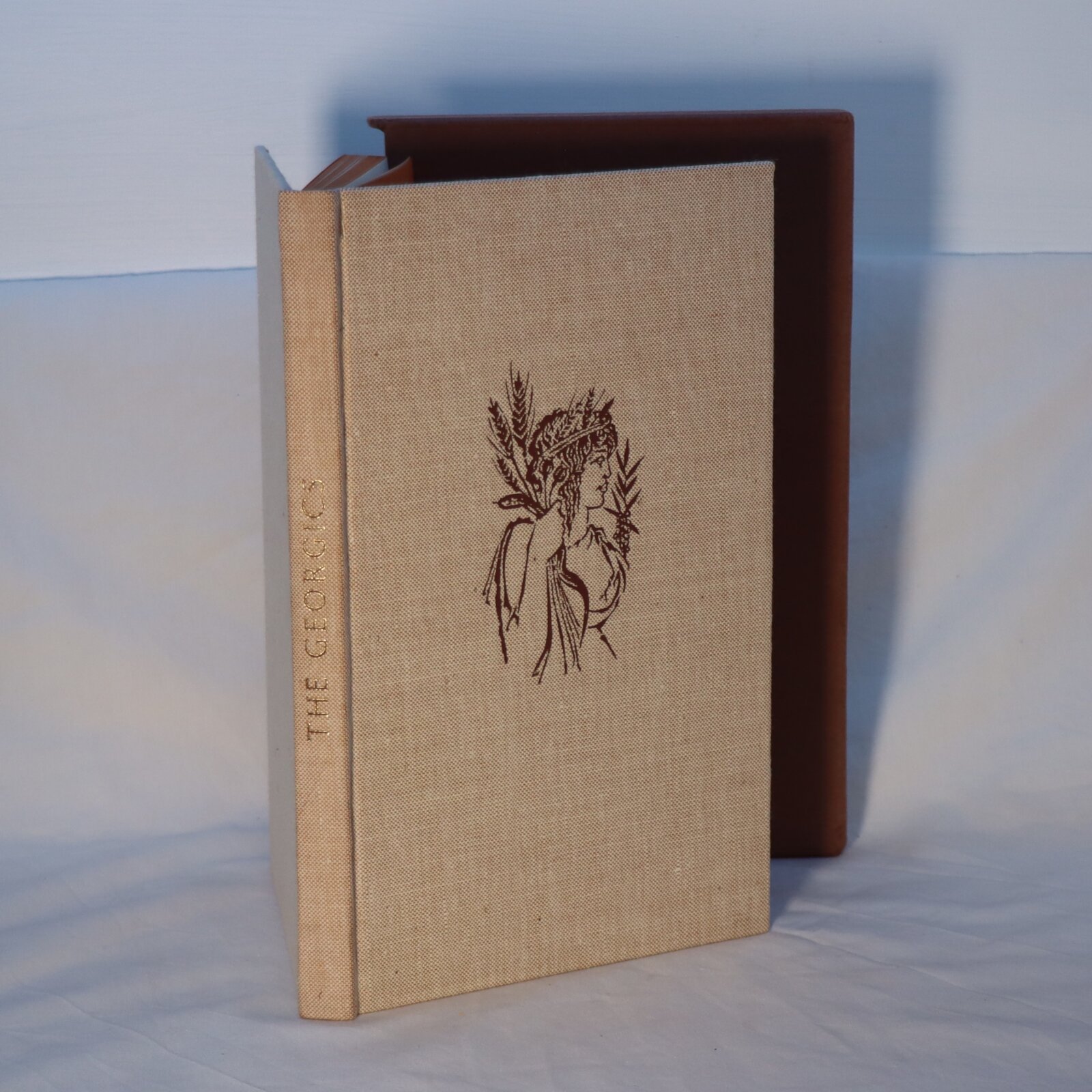
Related products
Share this Page with a friend

